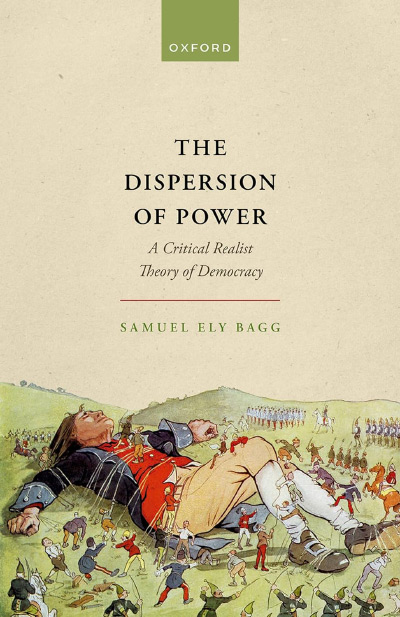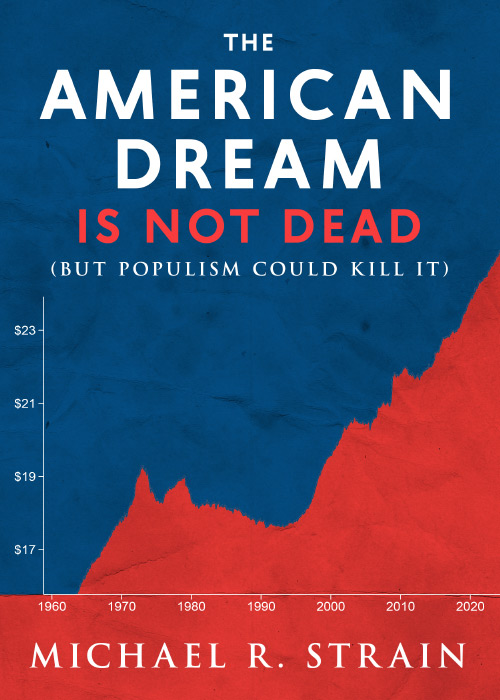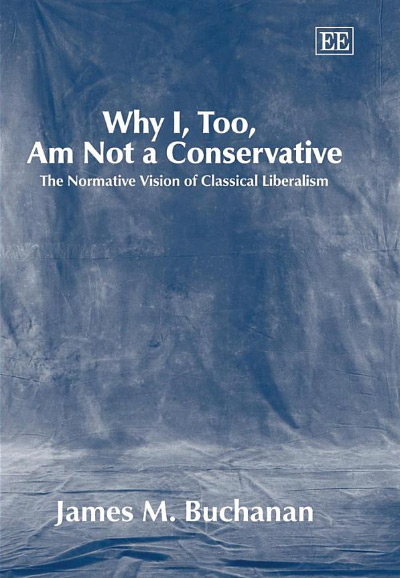As Ian Shapiro makes clear in the preface, his Moral Foundations of Politics grew out a lecture course of the same name that he has been offering at Yale University since the early 1980s. The central question in both the course and the book is, “What kind of government is morally legitimate and why?” Different theories of the sources of political legitimacy in Western political thought from the Enlightenment down to the present are canvassed in the book’s six central chapters. The presentation is fair -- and fairly standard -- though Shapiro has his own views on these theories, which he does not attempt to hide.
Chapters 2 and 3 constitute a clear and concise overview of utilitarianism, conceived of as a political philosophy. For classical utilitarianism (that is, Jeremy Bentham’s version), government’s main purpose is to create a stable framework within which people can pursue their own self-interest. Bentham’s apparent attachment to small government, however, never went very deep. Like many nineteenth-century reformers, he had enormous confidence in the power of science, informed by the Principle of Utility, to guide public policy. This attitude would seem to license government intervention potentially in a wide range of human affairs. For example, Shapiro notes that classical utilitarianism, together with the principle of diminishing marginal utility, appears to justify substantial redistribution of wealth. (I say “appears to justify” because in fact it does not. For a clear refutation of this standard utilitarian justification of redistribution, see David Schmidtz, “Diminishing Marginal Utility and Egalitarian Redistribution,” Journal of Value Inquiry 34 [spring 2000]: 263–72.) Bentham accepted this idea, although he believed the redistributive impulse had to be tempered by a consideration of the incentive effects of confiscatory tax rates. The modern preoccupation with figuring out the tax rate that will strike the appropriate balance between efficiency and “equity” seems to have its roots here (as does the benevolent-dictator model of government).
Shapiro explains how two standard problems with classical utilitarianism led to important reformulations in the late nineteenth century. One, the problem of interpersonal comparisons of utilities, prompted Vilfredo Pareto to formulate a preference conception of utility in which such comparisons were both “scientifically” illicit and unnecessary for the purposes of political economy. Pareto’s influence, especially on economists, is difficult to overstate, and Shapiro does an excellent job in explaining the sources and nature of that influence. He attributes to Pareto’s denial of the possibility of interpersonal comparisons of utilities an ethical significance, at least for subsequent economists: namely, that it enshrines “individual autonomy into the core logic of utilitarianism” (p. 43). A more philosophically sophisticated defense of the autonomy can be found in Mill’s articulation and defense of the Harm Principle in On Liberty, which deals with the second standard problem for classical utilitarianism -- namely, how to make room for rights claims in utilitarian doctrine. The main focus of this second chapter on utilitarianism is how the doctrine was modified to make room for rights.
Following the two chapters on utilitarianism are chapters on Marx and on social contract theory. Shapiro stresses Marx’s commitment to the Enlightenment project of applying the scientific method to the study of human behavior, which issued in Marx’s theory of history (Historical Materialism) and his political economy. Marx does not develop his ethical ideas in any detail, and Shapiro must twist the old communist’s arm to get him to speak to normative issues in general and to the question of political legitimacy that frames the book in particular. Although Marx presents his theory of exploitation as purely descriptive, Shapiro interprets it in a moralized way so that the labor theory of value takes on normative significance. On that reading, the labor theory is a variant of the Lockean idea that people are entitled to the fruits of their labor and that exploitation occurs to the extent that they are denied it. As Shapiro notes, Marx rejects this sort of moralizing, but whatever its difficulties, this way of thinking has undeniable appeal to those sympathetic to the Marxian world view. As to the question of political legitimacy, Marx famously maintained that beliefs about legitimacy are in some manner illusory and that the state is destined to wither away anyway with the advent of communism. This position does not prevent Shapiro from finding in Marx’s writings a conception of freedom that can serve as a basis for evaluating political and economic institutions. Though his exposition of Marxism and its difficulties is generally fair and accurate, Shapiro has to distort or depart from what Marx actually said to a greater or lesser extent to get him to speak to the concerns that frame Moral Foundations. This treatment may be justified by the enormous influence that Marx has had on Western political thought and practice.
The chapter on social contract theory is devoted in large part to Rawls. Shapiro locates Rawls’s most important contributions in his sustained attempt to deal with the political implications of moral disagreement and in his belief in the moral arbitrariness of differences between individuals. The former involves all the standard topics famously associated with Rawls’s thought: the original position, the veil of ignorance, and the argument for the two principles of justice. Rawls’s claims about the moral arbitrariness of differences among individuals starts with the observation that people do not deserve their natural talents. He adds that even their habits, such as their willingness to work hard, are owing to factors beyond their control. From these and similar observations, he concludes (in effect but erroneously) that people do not deserve anything at all. This conclusion clears the decks for treating natural talents and abilities as assets owned by the community, which in turn sets the stage for redistributive institutions. This implication about deservingness has troubled many of Rawls’s critics, even those on the left. Ronald Dworkin shrinks from this rather extreme view by insisting that distributive justice must hold people responsible for their choices, though not for their endowments. Thus, the fact that someone has expensive tastes does not give him any claim on social resources as a matter of justice, whereas those disadvantaged in the lottery of natural talents are owed compensation from those who have been advantaged in that lottery. As Shapiro says of Dworkin, “in this way he hopes to retain an idea of individual rights and responsibilities within the socialization of capacities framework” (p. 146).
Chapters 7 and 8 deal with anti-Enlightenment thought and democracy, respectively. The former is a wide-ranging discussion of critics of the Enlightenment project from Burke to postmodernism to communitarianism. The exposition of these views is fair and the criticisms measured. The chapter on democracy opens with a discussion of the tension between academic criticism and mistrust of democracy and its nonnegotiable status as a touchstone of political legitimacy. Shapiro details the standard complaints against democracy, ranging from its cavalier attitude toward the truth to its alleged irrationality (Arrow’s theorem) to the pathologies uncovered by public choice. Despite these problems, Shapiro defends democracy, essentially on the grounds that the defects are not fatal and can be mitigated significantly by standard left-of-center reform measures (for example, campaign finance reform). Readers of this journal will find this discussion the least persuasive part of the book. The chapters on utilitarianism, Marxism, and social contract theory are better organized and more self-contained than chapters 7 and 8, which have more of the character of a running commentary on a variety of topics that fall under the chapter headings.
A recurring theme in the first five chapters is what Shapiro calls the “workmanship ideal” in both epistemology and politics. In early Enlightenment epistemology, certainty and thus knowledge are to be found in one’s understanding of what one makes. (Thus, God knows the descriptive and prescriptive laws of nature because He created them.) Because ethics, politics, and the human sciences generally concern what human beings make or do, they had a much higher epistemological standing in the early Enlightenment than they do now and indeed than they did in the later Enlightenment, which was dominated by a fallibilist conception of science and reason associated most famously with Hume. This workmanship ideal gets imported into political philosophy in different ways, starting with Locke’s labor theory of property acquisition. It also appears in Marx’s labor theory of value and in Dworkin’s attempt to pull back from the implications of Rawls’s views that led the latter to deny that anyone deserves anything. This recurring theme and the associated connections between epistemology and political theory serve to tie together otherwise disparate elements in Shapiro’s story of the intellectual history of the Enlightenment and reactions to it.
The intended audience of this book is not completely clear. Shapiro offers an introductory treatment of the topic and for the most part breaks no new ground. The book could be used perhaps in an introductory course on the subject, though professors often have misgivings about teaching someone else’s course, which is what they would be doing if they used Shapiro’s book as their primary text. If a nonspecialist were seeking a relatively brief and straightforward overview of the topic described in the title, however, The Moral Foundations of Political Thought might be warmly recommended.


















